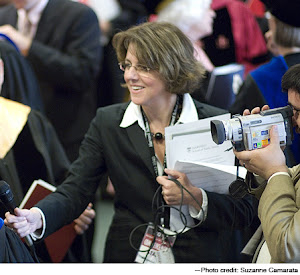A barrier-breaking generation gives context to contemporary female life.
Thursday, November 15, 2012
Concussions and NFL Culture Change
NFL Commissioner Roger Goodell asked for and got a platform at Harvard School of Public Health this afternoon to offer his thoughts on promoting safety in football and other contact sports. His speech came four days after three top QBs were lost to concussions on a single game day.
I had hoped Goodell would grab this chance to get tough on his bosses, ask them to face the problem with urgency and demand harsher disincentives for the brutal use of helmets during tackles. But it was not to be. Goodell's speech, which he read from a prepared text, instead promoted the good intentions of the NFL while sprinkled with gratuitous references to Harvard's college football history. Goodell presented a compendium of sports safety initiatives the league is involved with, most targeting youth players. But he didn't make a shred of policy news.
He could have called for a new rule requiring teams to immediately pull players from the field and the game if they "helmet butt" other players. Instead he gave the tired explanation that the current regulations deal with the problem and need to be enforced. He repeatedly suggested that "a change in the culture" would cure the ill.
Thing is, the current regulations and the idea of a change in culture put all the onus on the "victim" -- looking to the hurt player to acknowledge an injury after the fact. What about the responsibility of the "perpetrators" as I think of them?
Public health is all about prevention and Goodell's ideas for improving safety in the NFL are not it. Prevention would be creating disincentives of such immediacy and magnitude that an NFL defensive player wouldn't dare helmet butt the opponent. I'm thinking immediate suspension from the game, something that really hurts the team. The $30,000 fine levied on the Texans' Tim Dobbins several days after his Sunday assault on Chicago QB Jay Cutler did nothing to affect the Texans' competitive ability during that game - while Chicago had to play without its starting QB.
A player might think twice before pulling the helmet move if he knows it will be the last move of the game for him, that he'll be ejected, and that, in addition to hurting his opponent, he will be directly hurting his team's best interests.
Goodell received polite applause after his presentation. Then the media gathered around to ask if the NFL had reached any decision yet about testing players for Human Growth Hormone (HGH). No, it had not.
Subscribe to:
Post Comments (Atom)




No comments:
Post a Comment